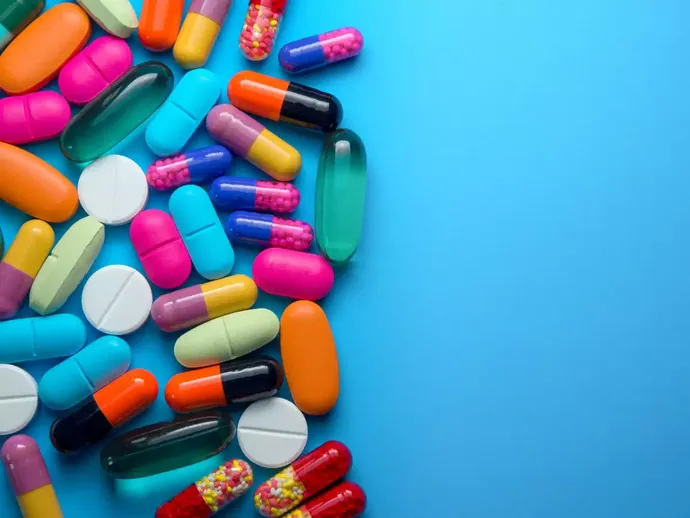Last updated on 18th Sep 2022 - By Dwayne Michaels
What can cause inaccurate blood test results?
The things which can affect certain lab test results are:
1. Intense physical activity :

Exercise is any bodily activity that enhances or maintains physical fitness and overall health and wellness.
Intense physical activity puts stress on the body, which can trigger certain hormonal and other changes, and can cause an increase in glucose production that lasts for up to several hours after the activity ends.
A workout before a fasting blood test can alter the results of cholesterol too. In some cases of cholesterol testing, if you exercise before having blood drawn your LDL cholesterol levels may actually increase. This is the bad cholesterol that you want to keep low.
Exercise is also known to contribute to increased levels of potassium, urea, creatinine, creatine kinase, lactate dehydrogenase (LDH), aspartate aminotransferase (AST), alkaline phosphatase, bilirubin, uric acid, as well as the white blood cell count.
Also Read : Painful health problems of famous celebrities
Although exercise improves an overall blood panel, Intense physical activity prior to a blood draw may negatively impact the results, so hold off on that workout until you’re done.
2. Alcohol :

Caffeine, alcohol, and tobacco are all examples of substances that could affect lab test results. Alcoholic beverages can elevate liver enzymes and blood sugar levels, thereby skewing the results of blood tests that require fasting.
Smoking can also affect blood test results. If a person has been asked to fast before a blood test, they should avoid smoking. Tobacco usage has also been linked to elevated blood sugar, triglycerides, and cortisol, and should be avoided before testing.
Alcohol has a noticeable effect on the body, even when consumed in small amounts. Trace amounts of alcohol can remain in your bloodstream for several days. If you have any concerns about alcohol consumption, discuss this with your doctor when you schedule your test.
3. Some drugs and medications :

Often, it's advised to continue taking your regular medications, even before a fasting blood test. But, its always good to clear this with your doctor, as well as any vitamin or supplements that you take on a daily basis.
Lab tests play a crucial role in clinical decision-making. More than 4000 lab tests are available, and an estimated 70% of clinical decisions are based on their results. The correct interpretation is critical. Non-prescription drugs (aspirin, cold medication, vitamins), prescription drugs, and alcohol intake often affect blood test results.
For example, biotin is a dietary supplement, and it was seen that biotin could cause clinically tremendous off-base outcomes on lab tests, for example, troponin. In these tests, biotin can cause erroneously low results and possibly severe clinical ramifications.
Also Read : Painful health problems of famous celebrities
Overall the best person to answer the question on medications is your doctor. But generally speaking, it depends on the type of medication you are taking and the reason for doing the laboratory test.
4. Sunburn :

Sunburn is a form of radiation burn that affects living tissue, such as skin, that results from an overexposure to ultraviolet (UV) radiation, usually from the Sun.
Scientists have found that sunburn can alter the distribution and function of disease-fighting white blood cells in humans for up to 24 hours after exposure to the sun. Repeated exposure to UV radiation may cause more long-lasting damage to the body's immune system. That is why sunburn can also affect your blood test results.
Common symptoms of sunburn in humans include: red or reddish skin that is hot to the touch or painful, general fatigue, and mild dizziness. Other symptoms include blistering, peeling skin, swelling, itching, and nausea.
5. Foods such as walnuts :

A large intake of walnuts may improve lipid profile and endothelial function. Walnuts are round, single-seeded stone fruits that grow from the walnut tree. Consumption of nuts has been associated with a decreased risk of cardiovascular disease events and death.
Walnuts in particular have a unique profile: Walnuts are rich in polyunsaturated fatty acids, which may improve blood lipids and other cardiovascular disease risk factors. Studies have shown that eating walnuts can help lower LDL (“bad”) cholesterol in particular, but also lower your cholesterol overall. But eating walnuts before your blood test can also cause inaccurate cholesterol levels.
Are lab test results always right?
While they do have to meet very high standards, they can be wrong sometimes. For example, you might get a false positive (the results say you have the condition you were tested for, but you really don’t) or a false negative (the results say you don’t have a condition, but you really do).
Lab test failures contribute to delayed or wrong diagnoses and unnecessary costs and care. For context, a 2014 study estimated that diagnostic errors happen about 12 million times per year in U.S. outpatients. This represents 1 in 20 adults. In case you think your blood test result doesn't make any sense, we recommend that you do the test again from HealthLabs as they perform testing using verified methods and they test blood only in the best CLIA certified labs.
Note : No insurance or doctor prescription is required.
HealthLabs also provide result interpretation. Their certified health specialists can walk you through your results and provide clarification if needed.
